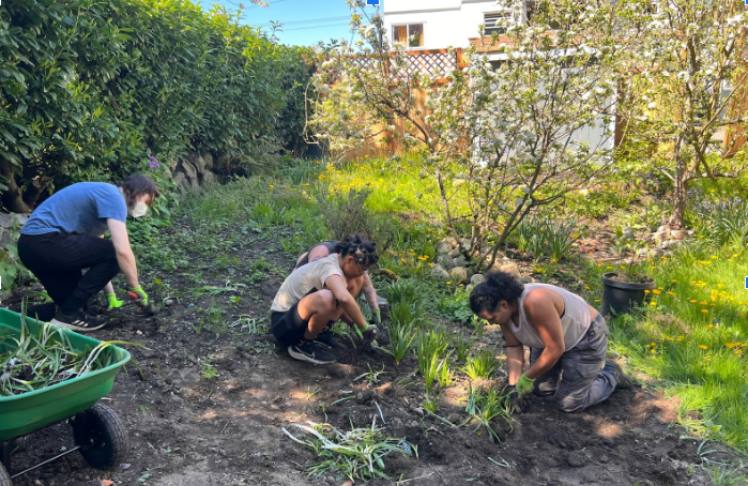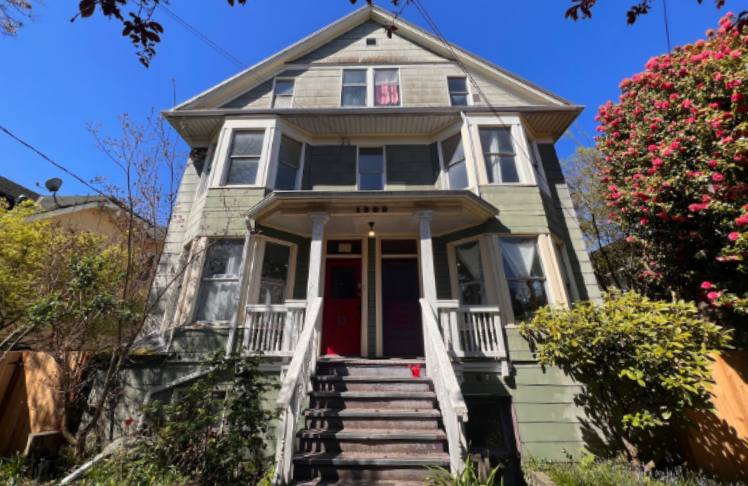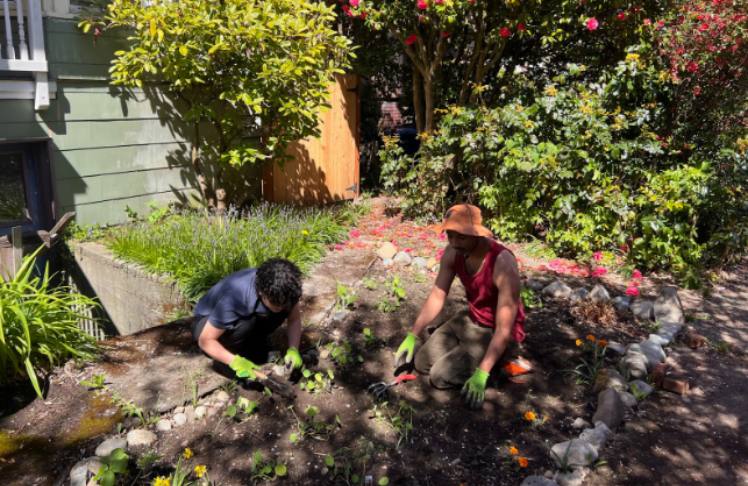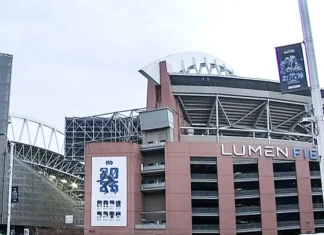
By Aisha Misbah, The Seattle Medium
Every two weeks in spring, summer and fall, Queer the Land (QTL) hosts community gardening days on their property
During these few hours, members of QTL tend the garden, blast their music, and laugh about the latest “Love is Blind” episode. Here, the queer, trans, and two-spirit, Black, Indigenous, people of color (QT2BIPOC) do not need to worry about finding acceptance because they already have it.
QTL is a collaborative project that seeks to support these communities on land owned and worked by these communities. The project is QTL’s response to the displacement and gentrification impacting Seattle’s queer and trans communities. In January 2021, QTL acquired a 12-bedroom house in Beacon Hill, Seattle after a long battle with the sellers.
Kalayo Pestaño, Aimée-Josiane Twagirumukiza, and Denechia “Neesha” Powell-Ingabire co-founded QTL in 2016. As organizers in grassroots organizations in Seattle, they saw that queer, trans, and BIPOC folks were especially struggling from the housing crisis.
In 2021, the Trevor Project, a non-profit focused on suicide prevention among the LGBT community, reported that 28% of LGBTQ youth in the U.S. reported experiencing homelessness or housing instability at some point in their lives. The same study shows that about 44% of Indigenous LGBT youth have experienced homelessness or housing instability.
Pestaño explained that being trans without family support can sometimes lead to dangerous situations.
“We decided to just talk about what would it take to have a different kind of solution to this crisis,” Pestaño said. “At this particular intersection what being trans means, usually we’re disconnected from our families of origin, and our support system is not the same as other people.”
Evana Enabulele, the program manager at QTL, received an email from the sellers in December 2019 that the Emma Goldman Finishing School (EGFS) property was for sale. The group decided to sell because they believed the original community-living mission of the EGFS wasn’t being upheld.

Enabulele and Pestaño were supported by Linda Chastine, the lead operations and development coordinator at QTL, along with their lawyers and the housing team at QTL. Enabulele says acquiring the house was a long process and took about a year. They have been struggling to get a house for QTL since 2016.
After a back and forth with lawyers, QTL was finally able to buy the house in January 2021 for $225,000. Enabulele says the City of Seattle helped tremendously by giving them a total of $200,000 as part of their Equitable Development Initiative (EDI). They paid the rest of the money from the $100,000 they had obtained through fundraising, membership dues, and grants for the house.
No one is living in the house. QTL is deciding whether to renovate the house or demolish it and build a new one on the land. It costs $628,000 to renovate and the house is worth $1.2 million. Enabulele says it might not be worth it to renovate.
Once decisions are made and the house can take residents, there will be an application process where people will be picked to live there. Enabulele says that it will be transitional housing of about two to three years.
The house is now under the Evergreen Land Trust, which owns other co-ops and farms in the Puget Sound area.

QTL also gets its money through private donors, membership dues, and donations. People sometimes donate their services, in fact, lawyers worked pro bono in the acquisition of the house.
The house is now used for meetings and gatherings. The land around it includes a community garden, currently sprouting onions, potatoes, watermelon, herbs, cucumber and more, for QTL members.
Bri’a Love is the housing manager at Lavender Rights Project and a community member of QTL. She spends most of her time in the gardening program and expressed how great and supportive the community has been for her.
“It’s a space of love, openness, and an inviting place,“ Love said. “It’s a place with community members who know how to do a variety of different things so we don’t have to depend on this capitalist f***ed up world if the world does go to shit.“
QTL also hosts a variety of community-building projects, such as Building Autonomy & Safety for Everybody (BASE), in which they teach participants self-defense and other safety skills. They’ll also have events like pole dancing lessons, which one of the community members hosted for the members.
Pestaño has a clear vision of the future.
“I want people to be like, ‘Okay, I don’t need to worry about where I’m gonna stay, I don’t need to worry about what I’m gonna eat… I have a place where people see me for who I am and can accept me. I feel like I can contribute.’“



